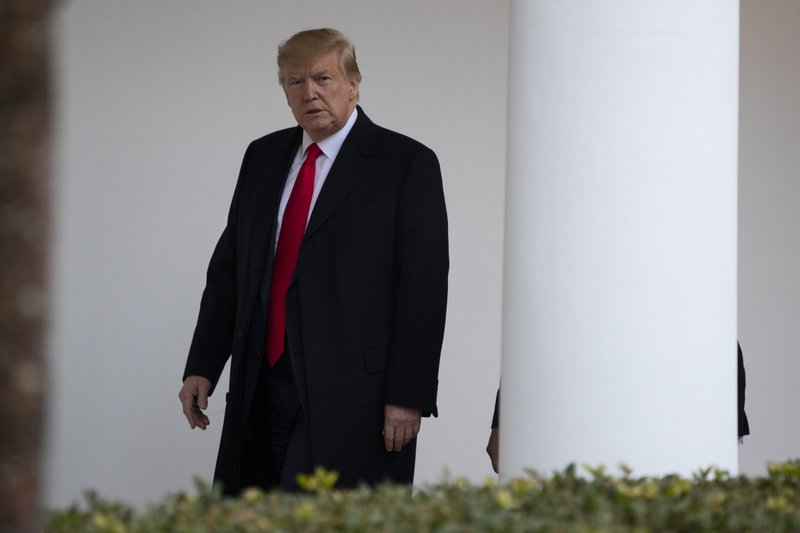by Rabbi Yair Hoffman for 5TJT.com
Today, the President is facing an impeachment process of the House of Representatives. Shortly after 9:00 AM, House Democrats will convene to adopt the rules for the impeachment debate. This will be followed by six hours of debate evenly divided between Republicans and Democrats. Some members will be afforded only one minute to speak, and no amendments to the impeachment resolutions will be permitted. The final vote sequence will likely begin well into the evening hours.
All of this brings to mind one halachic question:
Is there a halachic obligation to be praying for the president?
The short answer is yes.
Most of us have heard of the prayer in shul known as HaNosain Teshuah.
The prayer for the leader of the secular government has its origins in Sefer Yirmiyahu (29:7) “Seek the welfare of the city.. and pray to Hashem on its behalf..” It also appears in Pirkei Avos (3:2), where Rabbi Chananya S’gan HaCohanim says, “Pray for the welfare of the malchus.”
GENUINE OBLIGATION
It seems from the Poskim that this statement in Pirkei Avos is a genuine Rabbinic obligation, not just good advice. The Piskei Teshuvos 284:15 cites the practice of the Maharam Schick to fulfill this Rabbinic obligation with the recitation of Tehillim rather than the prayer of HaNosain teshuah. The practice of Rav Yisroel Salanter, the founder of the Mussar Movement, was slightly different. Whenever the shliach tzibbur and congregation would not recite the Tefilah of HaNosain Teshuah, he would do so himself – silently.
And for those that do not have a particular affinity to the president, let us remember that Yaakov Avinu did give a bracha to Paroh.
The prayer of HaNosain Teshuah first appears in the form that we know – in the Pinkas Ha’Ir of the Worms dating back to 1096 CE. [In the photograph above, we find the Tefilah in a siddur from England.]
DOES IT APPLY TO DEMOCRACIES?
One might present an argument that the wording in the Mishna refers to the word malchus -which means a government led by a king. Perhaps, however, this prayer does not apply to democracies when another section of the government is attacking the other. Why would this be? The answer is that the founders of this country tried to create a balance of power – congress is therefore – part of the government.
While this may seem to be a valid point, it seems that the prayer should be recited for the Executive branch of the government. The reason is that the reason given for the prayer is to reinforce stability in the country. Repercussions of these things are always difficult to predict, and there is a possibility that the president and or this country could suffer on account of this process.
So what tehillim could or should be recited? Some suggest 144 because that is where we find the pasuk of hanosain teshuah. 32 is also a good place to start.
The author can be reached at [email protected]












5 Responses
We daven evey day אתה חונן לאדם דעת You provide understanding to the human which includes the president.
Not everyone translates the שלומה של מלכות to refer to the leaders of the country. I have seen it interpreted as the general status of peace versus war. The rebbe of Kotzk said that the internal peace in the country would mean that the military would be busy at the borders to protect from other countries, and their services within would be uneeded. The alternative would be unrest internally, and the military would find themselves doing their work there as well, where they would blame the unrest on the Yidden, and would be in proximity to make trouble for us. At peacetime, they would be elsewhere and leave us alone.
Davening for the peace and success of the government is not necessarily the same as Davening for the success of a particular President, even given the assumption that the injunction to Daven applies specifically to the Executive Branch. This is an important difference between a Republic and a Monarchy (where the King is the government).
Without discussing the merits of the argument, I would point out that the Democrats’ assertion is that it is President Trump who poses a threat to the government, and specifically to the integrity of the Presidency.
Supposing (for the sake of the argument) that they are correct, then, it would be incumbent upon us to Daven for the success of the impeachment.
I’m davening for the president and I’m davening that all his שונאים have a מיתה משונה בקרוב ממש!
Jersey Jew, I really do not think it’s right to daven that all his שונאים have a מיתה משונה בקרוב ממש. But you should definitely continue to daven that H’ give the president sechel, binah, chochmah and daas.